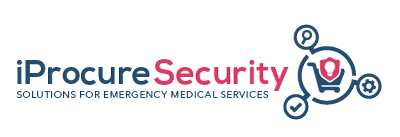
Webinar: Emergency Call Centres – Challenges, gaps and related innovative solutions.
In this webinar, iProcureSecurity provided an overview on the operating practices and dispatching processes implemented by the Emergency Call Centers across Europe and shed some light on related challenges and gaps to highlight innovations which can be applied to tackle these issues. The host of the seventh edition of the project’s webinar series was Johanniter International.
The webinar was held online on September 3rd, 2020.
Challenges and gaps affecting the quality of the Emergency Call Centres:
Presenters were seeking to demonstrate what kind of challenges and gaps Emergency Call centres across Europe had to overcome during the COVID19 crisis, but also beyond that. Guests in this virtual event were representatives of EMS organisations from England, Austria, and Germany.
Based on the collected findings, one can conclude that the challenges faced, were quite similar for all regions. The following key aspects were highlighted:
- Staff and organisation: A large scale response was required from and therefore provided by mainly voluntary organisations, as professionals were outnumbered. In addition, the medical staff needed to be available 24/7. These harsh conditions took their toll and made complete and thorough coordination very difficult.
- Funding and readiness: Many organisations faced crucial underfunding which prevented a proper response time. Since the overall velocity of operations went down with the increasing demand, much readiness was lost.
- Organisation and clarity: Initially, it was not clear which exact role the organisations had to play in the national emergency response, or who was in charge. In addition, there was the question of centralised vs. decentralised control – which made it hard for call centres to establish a functioning hierarchy.
- Technical issues: A great reliance on national infrastructure such as internet and telecommunications networks were also a common issue, that made working independently increasingly difficult since they were chronically overburdened.
- Change of systems: With the new situation of the global pandemic, special guidelines for COVID-19 had to be established, as well as training and working practices to get people up to speed, before they could actually start their routine.
- Communication: Very often wrong information was provided by the caller leading to general misunderstandings between him and the dispatcher or even loss of information in case of transmission to another Emergency Call Centre. In addition to the increasing stress, there was also high pressure added to the problematic circumstances.
Recommendations: Innovations to close these gaps or help to tackle these challenges
To tackle these and other related challenges from the field, the presenters suggested:
- To establish permanently staffed centres ensuring that key staff and associated support facilities are ready to scale up as required supported by new volunteers. These new key centres however would be fully equipped and scalable in capacity, while secondary centres will be “fitted” with the most necessary equipment and staff.
- To increase resilience, by the use of specialist service providers.
- To use similar programmes and software to harmonize the system.
- To establish interface functions adapted to the situation.
Link to the video: https://www.iprocuresecurity.eu/iprocuresecurity-emergency-call-centres-challenges-gaps-and-related-innovation-solutions/
To learn more about the ongoing work of iProcureSecurty consortium and the preparation on the upcoming European-wide Pre-Commercial project simply join our EMS Network and become a main driver of innovation in the field of Emergency Medical Services!

